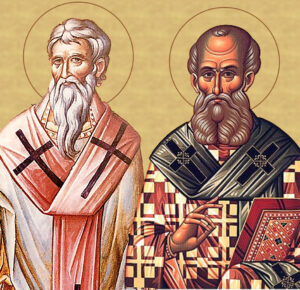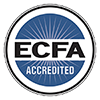By Dr. Don Bierle, FaithSearch President
At His trial, Jesus told Pontius Pilate that He had “come into the world to bear witness to the truth.” Pilate cynically replied, “What is truth?” (John 18:37-38). That is precisely the question in this third and final discussion on Christian doctrinal variation: What is the authority for Christian faith and practice?
In the previous two parts, I featured the Gospel of salvation (grace alone [sola gratia] through faith alone [sola fide]) and the nature of Jesus (the man Jesus is the Christ, the Son of God [solus Christus]).
Here I want to examine how various “Christian” groups measure up to the Protestant Reformers’ position that final authority is exclusive to Scripture (sola scriptura). A corollary to that is whether some “Christian” groups might have a “different spirit” (2 Corinthians 11:4).
The New Testament Canon Closed

Which New Testament books were to be accepted as inspired by the Holy Spirit, the standard (canon) for Christian faith and practice? R. Laird Harris argues persuasively that the test of inspiration is apostolicity, that is, authorship by an eyewitness apostle or men commissioned by the apostles (see 2 Peter 1:20-21; 3:2, and 2 Timothy 3:16).
Thus, the New Testament canon was limited to twenty-seven books written in the first century by apostolic eyewitnesses. Without further apostolic authority after the first century, the New Testament canon was closed.
Or Was It?
Many groups who call themselves “Christian” add other writings which they consider equally authoritative; or they claim to continue receiving new revelations from God; or both. For them, the canon is not closed, or at the least, it is not complete. For example:
- Mormonism The Book of Mormon, Doctrines and Covenants, the Pearl of Great Price, etc. are considered sources of final truth in addition to the Bible. Furthermore, they consider the church president as a “prophet, seer, and revelator” to receive new revelation from God beyond the Bible.
- Jehovah’s Witnesses The translated Bible is fallible and their headquarters, the Watchtower Society, had to correct, rewrite, and republish it. Only their revised version is authoritative. Furthermore, the Watchtower Society is considered God’s channel for progressive revelation to them.
- Catholics and Eastern Orthodox They believe that the presiding leadership (Pope, etc.) can receive additional revelation at any time. Catholic examples of new revelations considered authoritative include Mariology (Mary is sinless, a prayer intercessor, etc.) and purgatory. Orthodox additions include the sinlessness and intercessory role of Mary the mother of Jesus, and the teaching that past Saints are prayer intercessors on our behalf. None of these is in the Bible, but they are given equal authority.
The Bible’s Answer
- New revelations? There is to be none with the same authority as Scripture.
You shall not add to the word I am commanding you… Whatever I command you, you shall be careful to do; you shall not add to nor take away from it” (Deuteronomy 4:2; 12:32)
Revelation 22:18
“I testify to everyone who hears the words of the prophecy of this book: if anyone adds to them, God shall add to him the plagues which are written in this book…
- Sinlessness of Mary? There is none sinless but Christ alone (2 Corinthians 5:21).
“…for all have sinned and fall short of the glory of God…” (Romans 3:23)
“If we say we have no sin, we are deceiving ourselves…” (1John 1:8)
- Saints and Mary as prayer mediators? There are only two mediators identified in Scripture.
“For there is one God, and one Mediator also between God and men, the man Christ Jesus…” (1 Timothy 2:5)
“…the Spirit helps our weakness; for we do not know how to pray as we should, but the Spirit Himself intercedes for us with groanings too deep for words…” (Romans 8:26-27)
Holy Spirit
Is this also a problem area? Yes, groups like Mormons and Jehovah’s Witnesses deny God as Trinity, thus their “spirit” is not a person of the Godhead but the “active invisible force of Almighty God” (JW’s) or a “separate personage, ‘substance,’ one of a pantheon of gods” (Mormons). Thus, they have a “different spirit” as Paul taught (2 Corinthians 11:4).
On the other hand, Protestants, Catholics, and Orthodox have unity on this, holding that there is one God, eternally existent in three persons: Father, Son, and Holy Spirit (Matthew 28:19; John 16:12-15; 1 Corinthians 2:10-11).
Truth
I began this article with Pilate’s question about truth. Jesus Himself clearly stated the answer to Pilate’s question the night before His crucifixion: “Sanctify them in the truth; your word is truth” (John 17:17, emphasis added). May we all affirm the testimony of the Psalmist: “Thy word is a lamp to my feet, And a light to my path” (Psalm 119:105).
I encourage you to use the meaningful benediction of Jude 24-25 to commit your life to the only Savior Jesus Christ and that you may remain faithful to His Truth:
Now to Him who is able to keep you from stumbling, and to make you stand in the presence of His glory blameless with great joy, to the only God and Savior, through Jesus Christ our Lord, be glory, majesty, dominion and authority, before all time and now and forever. Amen.
Sources: The Kingdom of the Cults, Walter Martin, Bethany House Publishers; 1985; Inspiration and Canonicity of the Bible, R. Laird Harris, Zondervan, 1969.




